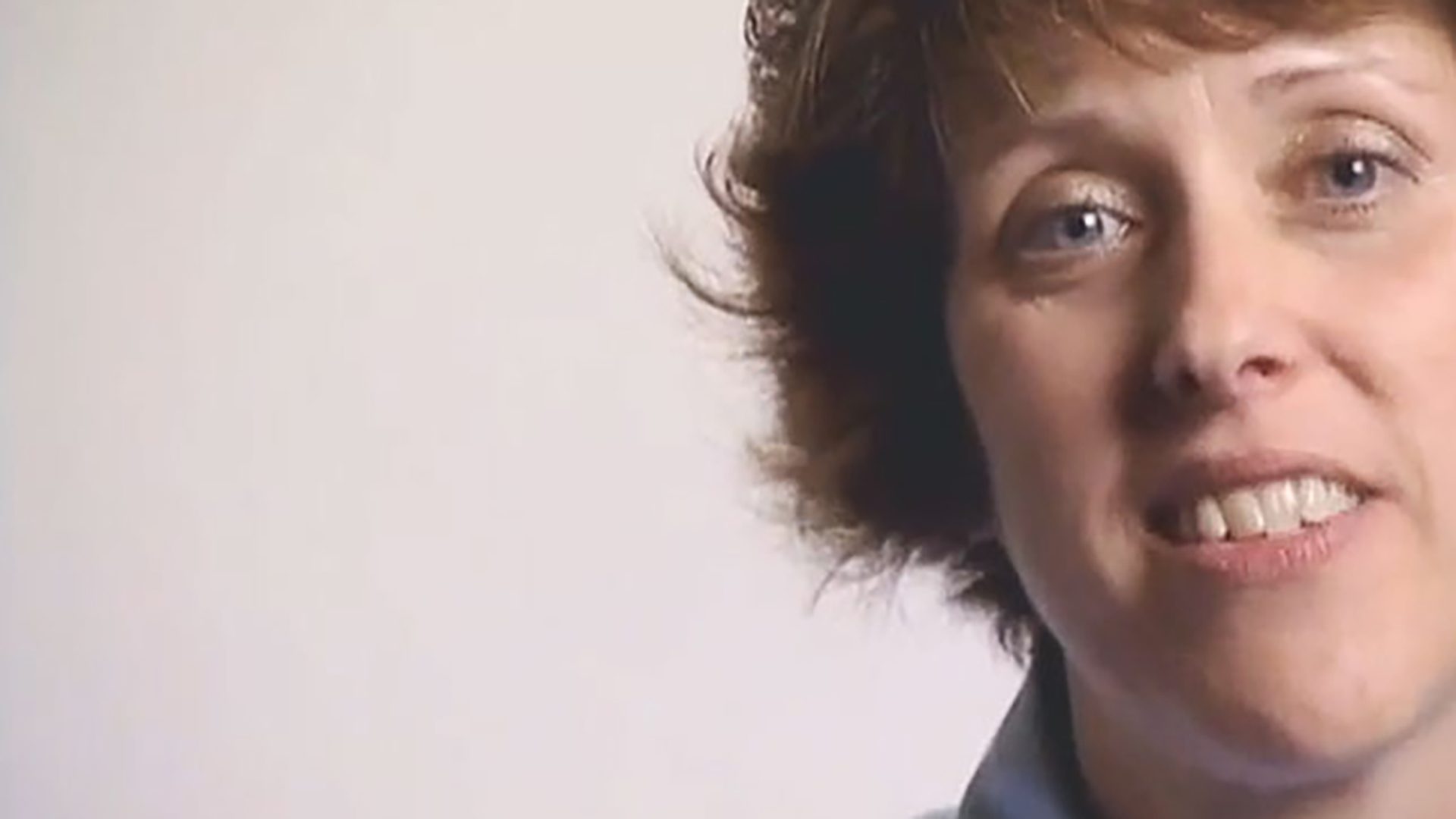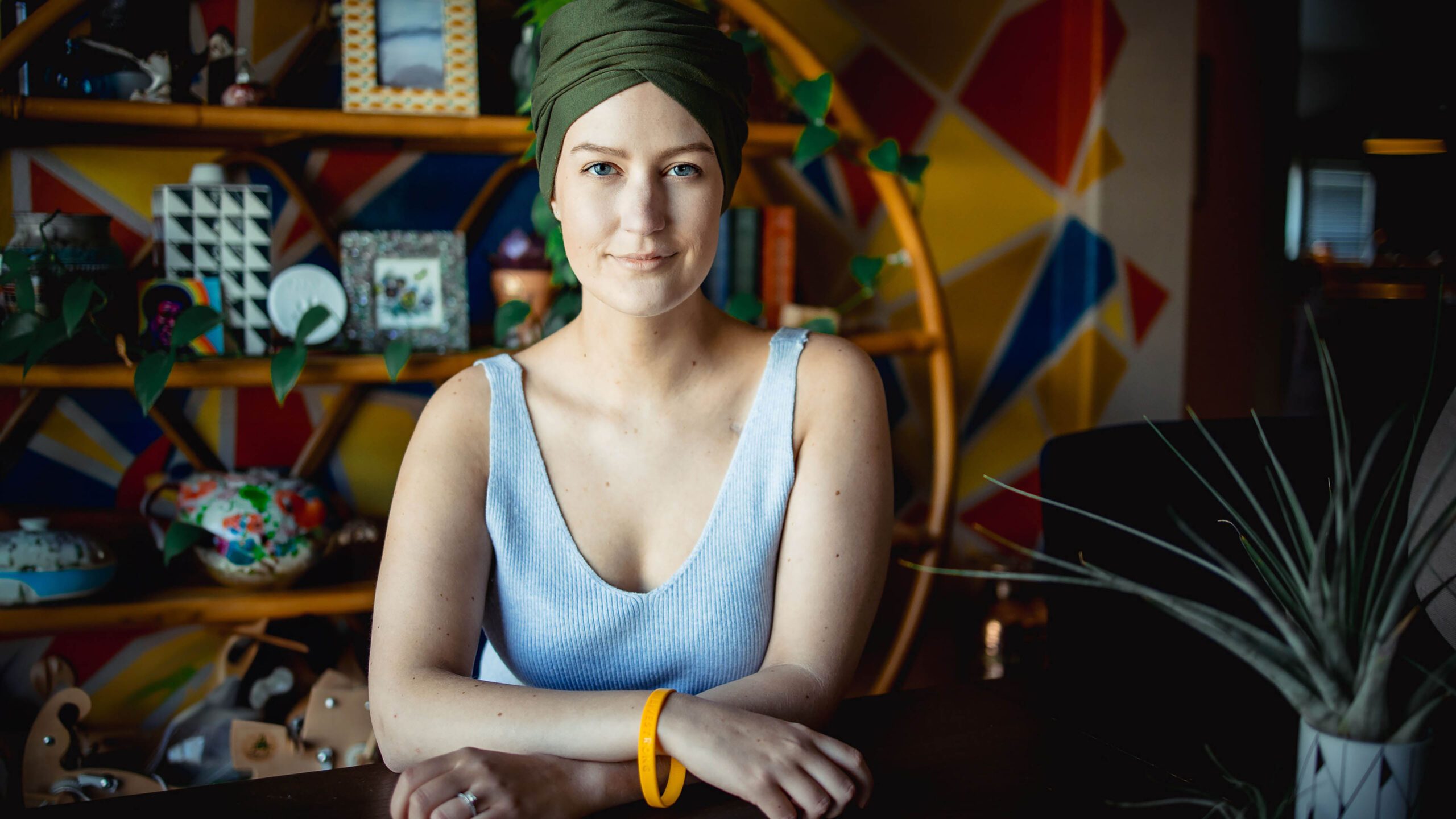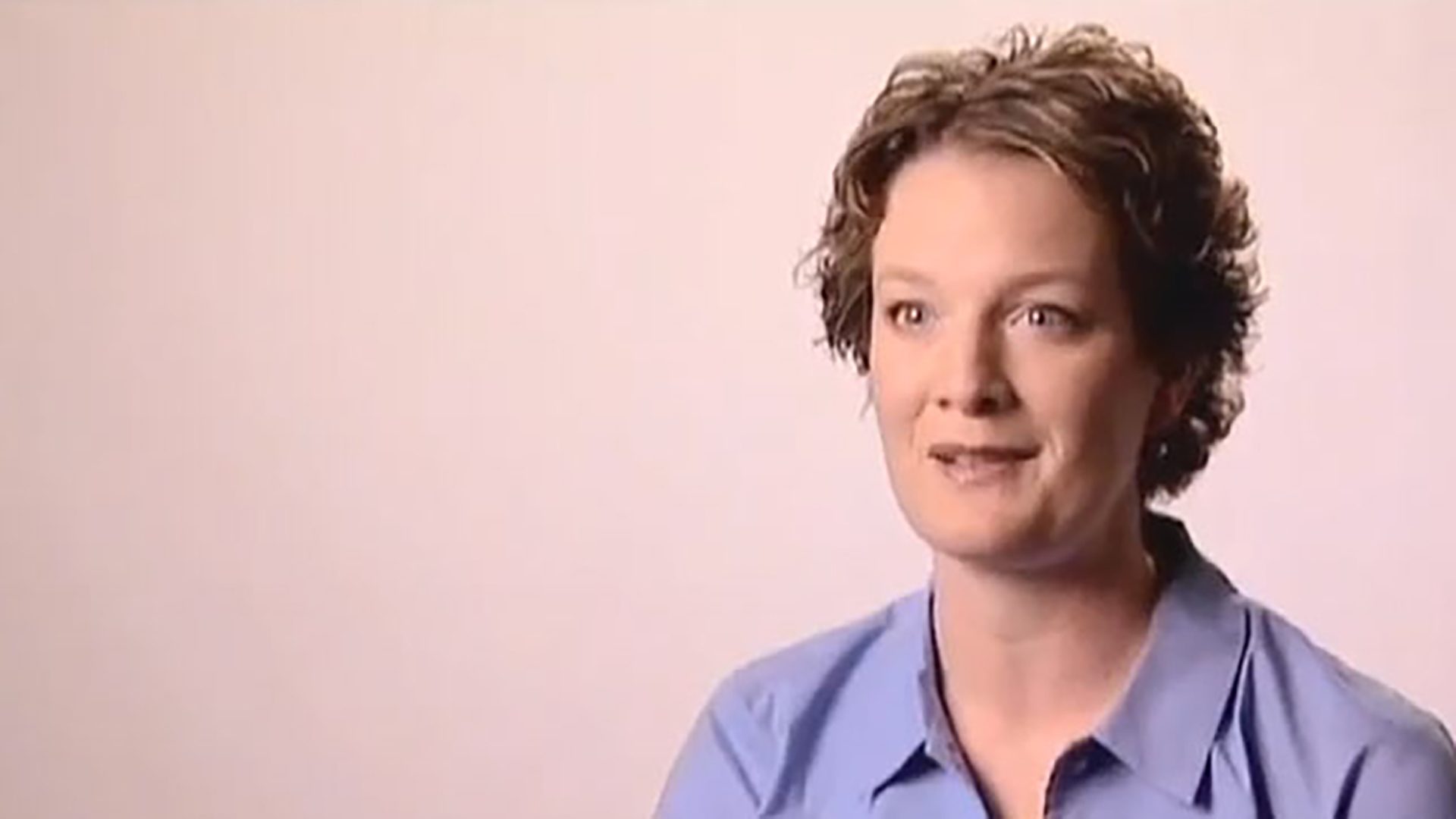Survivor Interview – Sharon D.
Sharon is a breast cancer survivor. She talks about communicating with her health care team, support from her husband during treatment, and feelings of anger.

My main physical issue was really coming to terms with the course of treatment that I needed to go through and trying to understand what that meant not only to me, but also to my husband. I ultimately ended up having a mastectomy. For someone who’s never had surgery prior to this, that was probably one of the toughest decisions I had to make—whether to try breast conservation or the mastectomy. If it was my kidney or something they said had cancer, I would have been able to make the decision instantaneously to remove it, but with the breast, it was very difficult to come to that decision.
I think that was one of the biggest issues was that I didn’t really know what it would look like. I didn’t have a good perception in my mind of what this would change. I was always worried when I would do sporting activities or go to the beach, that people could be able to tell that I had had cancer, and I was very conscious of that. I had never seen anybody that had had either a mastectomy or a double mastectomy.
Where I received my treatment, they actually had a women’s group and they’ve actually developed a book called “The Show Me Book.” It shows women—actual cancer survivors—who have had different types of treatment. Some have had lumpectomies. Some have had radiation. They tried to take before and after pictures, and then the women would write comments about their feelings and sometimes their spouse or significant other, so you would see them before they’ve had any lumpectomy or mastectomy and then post-treatment. Then they had women that had gone through reconstructive surgery and their types of reconstruction. I could understand, so it wouldn’t be the horror of going through the surgery and then finding out that I had one breast. I could visualize and get used to the idea that temporarily I might have one breast. I’m very pleased that I had the reconstructive surgery. I think for someone my age, it’s the way to go. I don’t have to worry about having a prosthesis.
As a result of going through chemo, I went through premature menopause, so my husband and I don’t have children. We will not have children. Sometimes it’s tough, but that’s life, and it doesn’t mean we can’t make a difference. I don’t even recall if it was mentioned that I could have gone into early menopause. If you’re thinking at all about having children, talk to your doctor or talk to a fertility specialist, so you can understand your options before you undergo the treatment.
When going to the doctor, take a notebook, have somebody that can sit there and document what is going on, and keep that notebook with you wherever you go, because you’re going to be overwhelmed. You need to be focused, so write your questions down, write your thoughts down, and then also write down what the doctor tells you. There are a lot of things being thrown at you at one point in time, and you’re going to come out of that and have questions. My husband and I found that as we went through treatment, we almost had to sometimes check up on the doctors to make sure, because they didn’t always have the notes right. We had to sit here and be able to tell them, “No, I had chemo on this date. I had this on this date.” So that, from a technical side point, I think that you’ve got to write down everything.
I think the main emotional issue was probably the questioning of, why me? I’d never really been sick. No one in my family had been sick. I have a tendency to believe that I’m a good person, so why did this happen to me? I was only 40. I’m too young.
The best piece of advice that anyone gave me during my survivorship experience probably was from my sister-in-law, who is a nurse, who said, “You can beat this.” So she set the tone saying, “We can get through this, and you can beat this,” because I had a preconceived notion that it was a death sentence. Right after I was diagnosed, I remember going past a church and there was a funeral, and I’m like, “Oh, my God, that’s gonna be me in six months.” Now I can sit back and say what a misperception that was at that point in time; I have another good 40-50 years. Breast cancer is not a death sentence. You can overcome it.
I really focused on the short-term. I put my energies into, “Today, I’ll have this done. What can I control?” Because so much of it was out of my control; it wasn’t until after I had reconstructive surgery that I was able to really start saying, “Okay, long-term, what do I want to do?” Prior to being diagnosed, I had started to exercise regularly, and I said, “Okay. I’m gonna go back and do that. But in the interim, the six months, it was really trying to manage getting through days or weeks and control what I could because so much of it was out of my control.
When I first was diagnosed, I told my parents. And I told them to tell my brother and sister not to call me because I wasn’t ready to talk to them. They should have ignored that advice. My sister did, she called me. Don’t wait for somebody that’s going through cancer treatment to ask you what they want. Just do it. If there’s something that you feel that you can do, however small, just do it. I didn’t ask for help; I didn’t know how. Even if they called when I wasn’t at home, just to say, “Hey, I know you had treatment today, I’m thinking about you,” was such a morale booster. It’s just the thought that you’re not alone. As a caregiver, you need to be strong for the person that’s undergoing the cancer treatment, so that they can let their guard down around you. They’re trying to be strong for themselves and for family members and other people.
I wish I had somebody that I could have talked to. Maybe not a physician, but somebody that I could say, you know, “Is this normal to feel this way?” Especially once I was through the chemotherapy, I didn’t know how to feel. Was I a survivor? Was I not a survivor? Then for the next year, anytime I had an ache or a pain, my immediate reaction was, “The cancer is back.” I go every six months to see my oncologist. You kind of go along, and then about a week before you start going back for your follow-up treatments, you start getting in this, “Oh, are they gonna find something? Are they not gonna find something?” I start to really tense up. I used to never have a fear of doctors. I just thought doctors, it was just routine. But I still worry.
I think it’s important that you go to your employer, your boss, and hopefully, you have a considerate individual, and that you tell them what you’re going through. Because if they don’t know, they can’t help you. Talk to the HR Department and find out what your benefits are, what you’re allowed to do. The sooner you know that, that’s one less thing that you have to worry about. My coworkers helped me tremendously. They truly treated me like a family and worried about me as a family member.
Today, I tell my family and friends, I’m no different than I was four years ago, other than I’m probably more goal oriented. I don’t wait. I would say, “I’ll do this someday when there’s time.” The time is now. I’ve been put here on this earth to do good, and I’ve been given that second chance. Money, titles, they can be gone tomorrow but I’m a cancer survivor and I’m gonna be a cancer survivor. And if I can help one person, then in some ways I guess it’s good to be a cancer survivor. I viewed beating cancer as a challenge. Cancer gave me a second chance to be a better person, to change my priorities in life and move away from focusing on a career to family and the things that really matter.
I think survivorship, to me, means being able to tell people that I am a cancer survivor. For the first year after I was diagnosed, I was afraid to even admit to myself that I had cancer and that I then once I got through it, it took me a while to say, did I really survive? But now, it means being able to go out and not being afraid to say, “I’m a cancer survivor and here’s what I’m doing—to admit to yourself and others that you had cancer and that you can overcome it. I never thought I’d be able to laugh about going through cancer, but now I can make jokes, and it’s just being able to show people that you can get through it.
My name is Sharon Duncan. I’m 44 years old. And I’m a breast cancer survivor.

